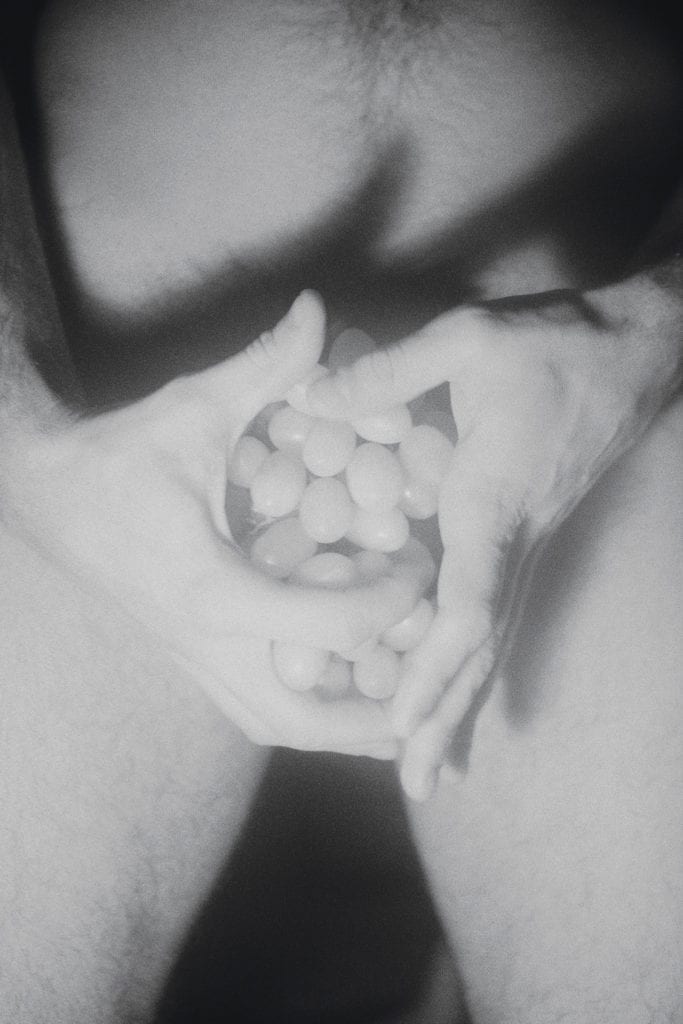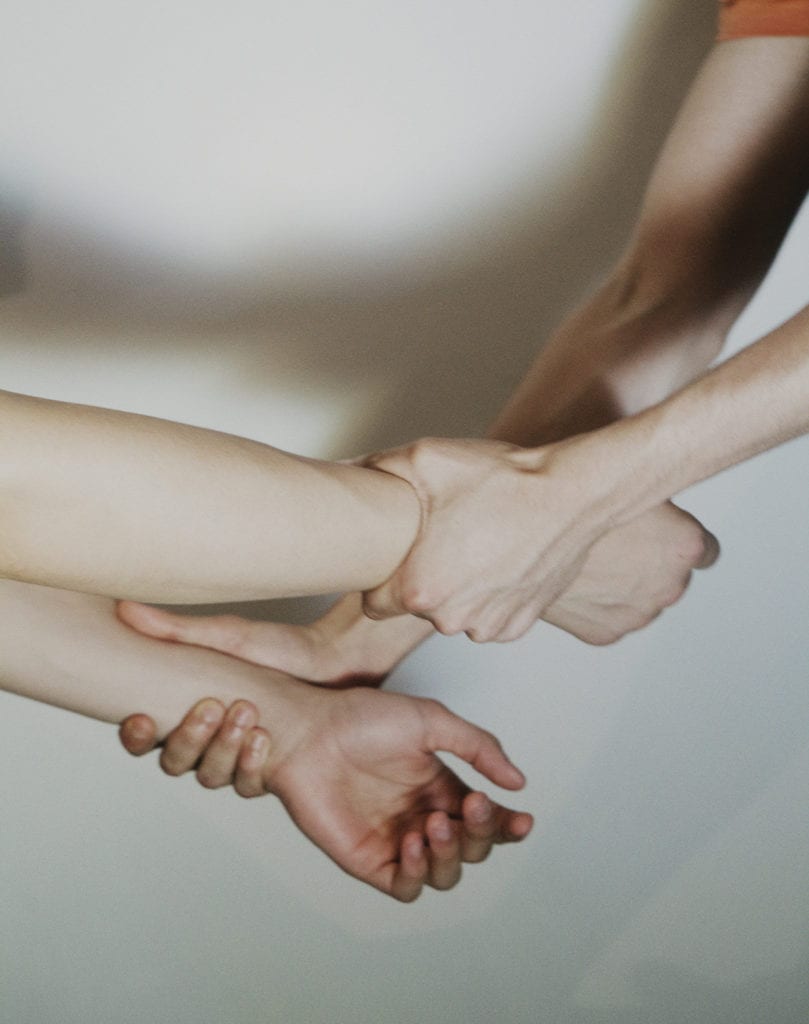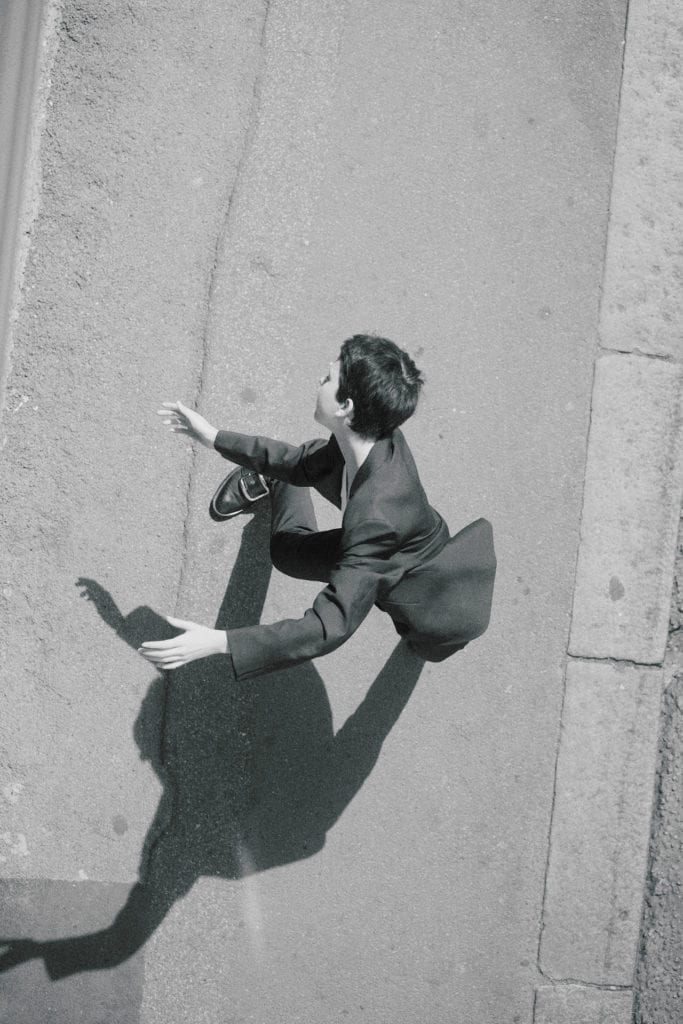“For men who are boys, a cry to connect”: So begins Romain Duquesne’s debut photobook, the statement scrawled across the bottom-right corner of the publication’s first blank-page. “This is for men who put on the performance,” says the London-based photographer, tracing his interest in ‘masculinity’ back to his upbringing in a small Australian town, where certain acts and behaviours were hyper-normalised and encouraged. “Men who [perform ‘masculinity] show a lack of confidence, because they don’t have a healthy relationship with their masculinity,” says Duquesne. “A lot of men are still boys. They don’t know how to process their emotions. This is for the kind of men who feel the innate need to dominate physical spaces.”
Duquesne began photographing aged 14 and quickly decided he would pursue it as a career. However, he was somewhat of an anomaly in his hometown. “When you left school, if you were a girl, you became a secretary, and if you were a guy you worked in trade,” he explains, “I knew I wanted to get out and do something different”. After studying photography at a technical college in Perth, Duquesne moved to London in 2015, establishing a career in commercial and editorial photography.
“When you start working as a creative, it’s easy to produce work that people expect of you, in order to get paid. When that mentality runs through, it’s hard to stand out and do your own thing,” Duquesne reflects. “I started to realise that I didn’t like the images I was making, and that was when I began to ask myself, ‘what am I trying to say?’”
A few years ago, the photographer sat down and wrote out a list of frustrations with the world, which he hoped he could channel in his work. “One of them was the idea of masculinity,” he says. “Australia has a hyper-masculine culture, and there are a lot of negative undertones that come with that. I wanted to work through those themes from a photographic perspective, in both a literal and metaphorical way.”
In the photobook, which is titled Hi, Hello!, Duquesne’s visual language it both sensual and playful. Some of the photographs present male interactions through a softer lens, where bodies graze one another, and fingertips touch tentatively. Others capture typically “masculine” gestures — a strong handshake; a clenched fist; a flexed bicep.
But, underlying the images is a sense of awkwardness: of bodies captured mid-motion, for example, which speaks to the tensions that may arise from a failure to perform these normalised gestures. Duquesne address this in a way that is both confrontational and comical, taking visual cues from images of primates, and sports like wresting, which the photographer describes as “homoerotic and hilarious” — “the idea of aggression mixing with that at the same time was quite comical to me,” he explains.

Another element of irony is introduced in images that incorporate fruit, a nod to the childish act of employing bananas or grapes in place of genitalia. “It’s so juvenile,” says Duqesne. “I wanted to work on that metaphorically, by showing nudity in a way that wasn’t sexualised or too suggestive, but almost awkward because it deconstructs the idea of what a penis and a man is meant to look like.”
Despite the negativity that accompanies normalised illusions of masculinity, Duquesne does not see this work as a critique. Rather, he regards it as a way of opening up conversations. People should embrace their masculinity or femininity, he says, “but when it reaches the point where it becomes a performance, the heart of it becomes eclipsed, and I don’t think there is any point to that. I want to help people talk more about this, so that as a society we can progress and have the kind of dialogue that I did not have growing up.”
Hi, Hello! by Romain Duquesne is available to purchase from Donlon Books.


